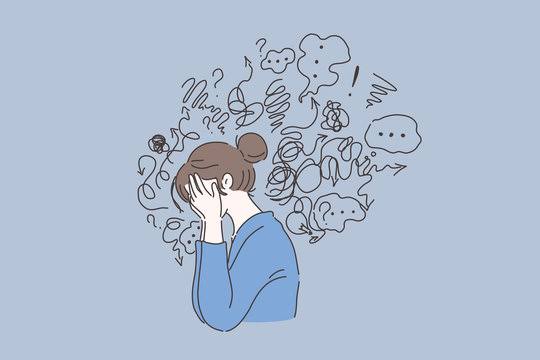#mentalhealth
#MentalHealthMatters
#MentalHealthAwareness
#HPD 🧵🧵🧵
Histrionic Personality Disorder (HPD) is characterized by a pattern of excessive attention-seeking and emotional expression.
#MentalHealthMatters
#MentalHealthAwareness
#HPD 🧵🧵🧵
Histrionic Personality Disorder (HPD) is characterized by a pattern of excessive attention-seeking and emotional expression.

🍄 Individuals with HPD often have an intense desire to be the center of attention and are skilled at drawing attention to themselves through dramatic and flamboyant behaviors.
🍄 They may exhibit exaggerated emotions and have a tendency to be theatrical, appearing more emotional than the situation warrants.
🍄 People with HPD may have a shallow or rapidly shifting emotional range, displaying intense enthusiasm one moment and quickly shifting to sadness or anger.
🍄 They often have a strong need for reassurance and approval from others, seeking constant validation and praise.
🍄 Individuals with HPD may have difficulty maintaining long-lasting relationships due to their intense and demanding nature.
🍄 They may be easily influenced by others and have a tendency to adapt their behavior and opinions to gain approval and maintain attention.
🍄 People with HPD may have a preoccupation with physical appearance and use their physical attributes to draw attention.
🍄 They may engage in attention-seeking behaviors such as provocative clothing, seductive behavior, or exaggerated stories to captivate an audience.
🍄 Individuals with HPD may struggle with self-identity and have a fear of being ignored or forgotten.
🍄 They may experience difficulties with impulse control, leading to impulsive behaviors such as reckless spending, substance abuse, or risky sexual behaviors.
🍄 People with HPD may have a high level of suggestibility and may be easily influenced by others' opinions or suggestions.
🍄 They often exhibit a heightened emotional sensitivity and may interpret neutral or ambiguous situations as personally significant or rejecting.
🍄 Individuals with HPD may be prone to somatization, expressing emotional distress through physical symptoms.
🍄 People with HPD may have a tendency to idealize others, placing them on pedestals, and seeking their attention and approval.
⚠️ It's important to note that a diagnosis of Histrionic Personality Disorder should only be made by a qualified mental health professional based on a comprehensive assessment.
@threadreaderapp unroll
• • •
Missing some Tweet in this thread? You can try to
force a refresh

 Read on Twitter
Read on Twitter









